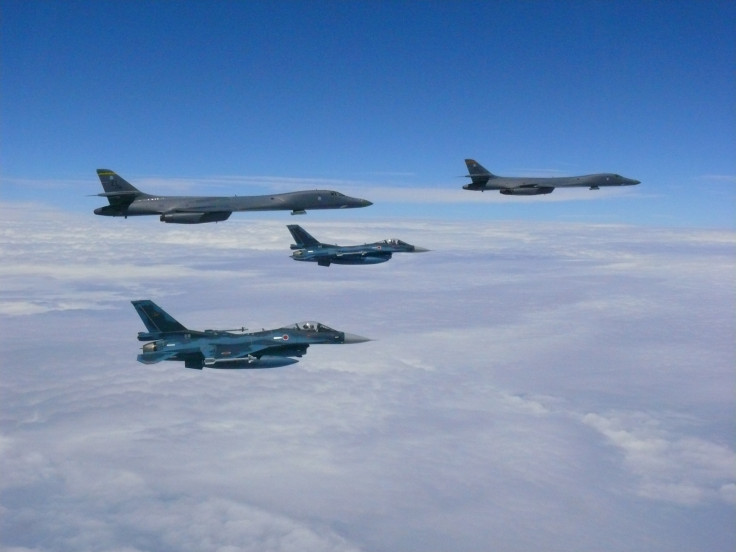North Korea accuses US of conducting nuclear strike rehearsal as B-1B bombers buzz Korean peninsula
The bombers' flight comes just ahead of President Donald Trump's vital Asia tour.
North Korea has accused the US of conducting a surprise rehearsal to launch a nuclear strike as Washington's forces flew two B-1B sophisticated bombers over the Korean peninsula. The pair of nuclear-capable bombers was flanked by South Korean and Japanese fighter jets.
The bombers' flight came just ahead of President Donald Trump's vital Asia tour, which is widely expected to be dominated by the activities of North Korea. However, the US forces said the B-1B mission was a previously scheduled operation and not dictated by the recent developments.
"The two B-1B Lancers took off from Andersen Air Force Base, Guam, and transited south of Korea and west of Japan to integrate with Koku Jieitai (Japan Air Self-Defense Force) fighters," said a statement from the US Pacific Air Forces.
"The Lancers then transited overland to Korea to integrate with Republic of Korea fighters in the Yellow Sea. Upon completion of bilateral integration, the aircraft returned to their respective home stations."
South Korean military said the US bombers practised aerial attacks on ground targets simulating drills along with Seoul's F-16K fighters. "B-1B bombers have flown over the Korean Peninsula once or twice per month. The move is part of efforts to enhance rotational deployments of US strategic assets to curb North Korea's nuclear and missile threats," a South Korean military source told Yonhap news agency.
The supersonic bombers flew over Japan and then over South Korea before cruising above the East Sea, also known as the Sea of Japan. Though the US usually flies its bombers as a show of force against North Korea whenever there is a major event such as a missile launch or a nuclear test, Washington has increased the flight's frequency in recent months as a mark of sharp escalation.
Hours before the US Air Force's official announcement about the manoeuvre, North Korea condemned the drill saying the strategic bombers indicate the "nuclear threat and blackmail" of "gangster-like US imperialists".
"On Thursday [2 November] they let a formation of B-1B nuclear strategic bombers stationed at the Anderson Air Force Base on Guam stealthily fly into South Korea again to stage a surprise nuclear strike drill targeting the DPRK [the Democratic People's Republic of Korea – North Korea's official name]," said a statement from the state-run Korean Central News Agency.
"The US imperialists are making last-ditch efforts to check the dynamic advance of the DPRK by deploying their nuclear strategic assets in succession, but its army and people are never frightened at such moves."























